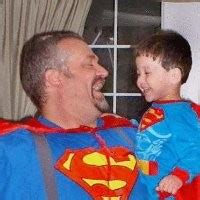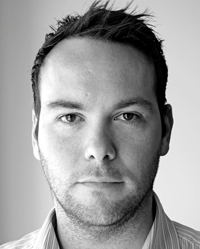A Quote by Nick Petrie
Reading good books is one distraction that will help you become a better writer. And writing - that's the thing - writing is what will really make you a better writer. Write bad stories until you begin to write so-so stories, which might, if you keep at it, turn to writing good stories.
Related Quotes
I started writing the book without realizing I was writing a book. That sounds stupid, but it's true. I'd been trying and failing to make a different manuscript work, and I thought I was just taking a break by writing some short stories. I'm not a very good short story writer - the amazing compression that is required for short stories doesn't come easily to me. But anyway, I thought I'd try to write some short stories. And a structure took shape - I stumbled upon it.
I can't decide for you whether or not you have got to write, but if anything in the world, war, or pestilence, or famine, or private hunger, or anything, can stop you from writing, then don't write . . . because if anything can even begin to keep you from writing you aren't a writer and you'll be in a hell of a mess until you find out. If you are a writer, you'll still be in a hell of a mess, but you'll have better reasons.
I haven’t had trouble with writer’s block. I think it’s because my process involves writing very badly. My first drafts are filled with lurching, clichéd writing, outright flailing around. Writing that doesn’t have a good voice or any voice. But then there will be good moments. It seems writer’s block is often a dislike of writing badly and waiting for writing better to happen.
Writing sustains me. But wouldn’t it be better to say it sustains this kind of life? Which doesn't mean life is any better when I don’t write. On the contrary, it is far worse, wholly unbearable, and inevitably ends in madness. This is, of course, only on the assumption that I am a writer even when I don’t write - which is indeed the case; and a non-writing writer is, in fact, a monster courting insanity.
Go where the pleasure is in your writing. Go where the pain is. Write the book you would like to read. Write the book you have been trying to find but have not found. But write. And remember, there are no rules for our profession. Ignore rules. Ignore what I say here if it doesn't help you. Do it your own way. Every writer knows fear and discouragement. Just write.The world is crying for new writing. It is crying for fresh and original voices and new characters and new stories. If you won't write the classics of tomorrow, well, we will not have any.
I realized you might make money at writing, and you might even make a living at it. So after that I didn't write stories just for the class but wrote them for the purpose of submitting them somewhere, and at some point in the process, I began writing them just to please myself and that's where you begin to see the real value of a life of writing.
I started out in graduate school to be a fiction writer. I thought I wanted to write short stories. I started writing poems at that point only because a friend of mine dared me to write a poem. And I took the dare because I was convinced that I couldn't write a good poem... And then it actually wasn't so bad.
I started writing because I wanted to write scripts, but I wasn't very good at it. Then I started writing short stories, sort of as treatments for the film scripts, and I found I enjoyed writing short stories far more than I enjoyed writing film scripts. Then the short stories got longer and longer and suddenly, I had novels.
Good writing, in my opinion, is writing that looks really easy, so easy that a person who has never written more than a grocery list might convince themself that they could also write a book. That being said, it's always a lot of work, as you know. And then there's this: you have no idea how many failed stories and novels I've attempted. I have files full of stories that didn't work for whatever reason.
My greatest strength as a writer is that I'm a storyteller. But, it was a long, hard struggle for me to make the transition from verbally telling stories to writing them. You'll note I don't dwell on descriptions in my writing, because I'm far more interested in telling the story. There are many better writers in this world, but you'd be hard pressed to find anyone more passionate about stories than I am.






































